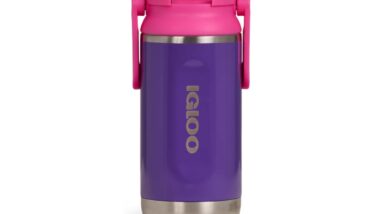Top Class Actions’s website and social media posts use affiliate links. If you make a purchase using such links, we may receive a commission, but it will not result in any additional charges to you. Please review our Affiliate Link Disclosure for more information.

Many United States military members were seriously injured or killed by EFPs and IEDs in Iraq and Afghanistan. According to the U.S. Department of Defense, these explosive devices were supplied by Iran. Military members who were injured by these devices have the right to file lawsuits against Iran, as well as banks that support terrorist states and countries.
What are IEDs and EFPs?
According to a Department of Homeland Security fact sheet, an IED, or Improvised Explosive Device, is a type of bomb utilizing a detonating mechanism. IEDs were widely used in the Iraq and Afghanistan wars as roadside bombs.
As IEDs are homemade, improvised explosives, they can come in many forms. Some IEDs are small pipe bombs, while others are very sophisticated and may cause mass casualties and damage. IEDs are often surrounded by extra materials, such as glass shards, nails, or bits of metal. These materials are added in an attempt to increase the amount of shrapnel produced by the explosion. In the Iraq and Afghanistan wars, IED explosion injuries were responsible for over 60 percent of deaths.
EFPs are explosively formed penetrators, a type of incredibly lethal weapon. These projectile weapons are able to pierce armor and may travel up to 100 yards before detonating and causing massive damage.
Common IED and EFP Injuries
EFP and IED explosion injuries may result in catastrophic physical damage. Common injuries related to these explosive devices include:
- Broken bones
- Limb amputation
- Blast or burn injuries
- Post-traumatic stress disorder (PTSD)
- Mental disabilities
- Traumatic brain injuries
- Paralysis
- Shrapnel injuries
- Vision loss
- Spinal cord injuries
Who is Responsible?
Although Congress instituted Iranian sanctions in an attempt to prevent the country from engaging in terrorist acts or sponsoring terrorism, Iran was able to find banks that were willing to work around these sanctions in exchange for profit.
Under the United States Anti-Terrorism Act, victims of terrorist attacks are able to sue enablers and conspirators of terrorists. At least twelve foreign banks have been found to have violated the United States Anti-Terrorism Act by providing aid and funding to various terrorist groups. These banks include:
- Arab Bank
- Bank of China
- Bank Saderat Iran
- Bank Saderat
- Barclays
- Commerzbank
- Crédit Lyonnais
- Credit Suisse Group
- HSBC Holdings
- Natwest
- Royal Bank of Scotland
- Standard Chartered
Who is Eligible?
Iraq and Afghanistan war veterans, contractors, and family members may be eligible to file lawsuits against Iran and affiliated banks for injuries sustained during the wars between 2003 and 2011. Victims of EFP and IED explosion injuries may qualify to receive compensation for their injuries, and family members of victims may be able to file wrongful death suits regarding their loved ones.
If you or a loved one was injured or killed by an IED or EFP while fighting in the Iraq or Afghanistan wars, legal recourse is available. Get help now by filling out the form on this page for a FREE case evaluation.
The attorneys who work with Top Class Actions will contact you if you qualify to let you know if an individual lawsuit or anti-terrorist class action lawsuit is best for you. (In general, anti-terrorist lawsuits are filed individually by each plaintiff and are not class actions.) After you fill out the form, the attorneys who work with Top Class Actions will contact you if you qualify to let you know if an individual lawsuit or class action lawsuit is best for you. Hurry — statutes of limitations may apply.
ATTORNEY ADVERTISING
Top Class Actions is a Proud Member of the American Bar Association
LEGAL INFORMATION IS NOT LEGAL ADVICE
Top Class Actions Legal Statement
©2008 – 2024 Top Class Actions® LLC
Various Trademarks held by their respective owners
This website is not intended for viewing or usage by European Union citizens.
Get Help – It’s Free
Join a Free Iranian IED, EFP Lawsuit Investigation
If you qualify, an attorney will contact you to discuss the details of your potential case at no charge to you.
PLEASE NOTE: If you want to participate in this investigation, it is imperative that you reply to the law firm if they call or email you. Failing to do so may result in you not getting signed up as a client or getting you dropped as a client.
Email any problems with this form to questions@topclassactions.com.
Oops! We could not locate your form.












